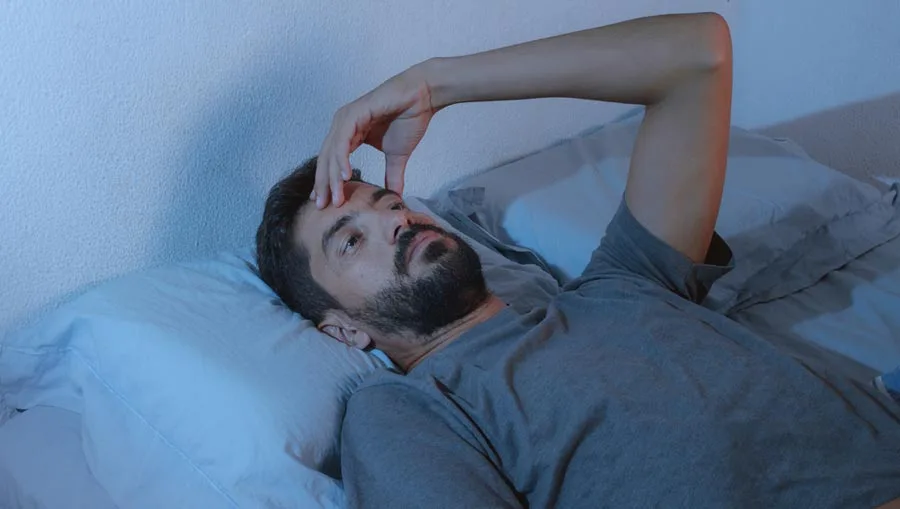Get Evidence-Based Benzodiazepine Detox Services at Catalina
Benzodiazepine usage is rampant these days with 5.3 million people reporting misuse. The withdrawal symptoms of coming off these medications can be quite severe and uncomfortable, which is why most people will want to enter into our benzo detox. This gives you the setup needed for success in coming off benzos for the long haul.
If you or a loved one have come to this resource seeking effective, evidence-based help for any form of benzodiazepine withdrawal symptoms, you have come to the right place.
Catalina Behavioral Health offers a medical detox setting so that you can get the help you need with both acute and protracted withdrawal symptoms. Our admissions team is ready and waiting to welcome you into our facility so that you can start the process of sober living.
Keep reading to understand more about benzo detox protocols, managing withdrawal symptoms successfully, and our proven programs at Catalina!
Immediate Help For Benzodiazepine Addiction – Call Now!
What to Expect from Benzodiazepine Withdrawal
Do you feel ready to seek help for benzodiazepine abuse or addiction but want to know what you can expect first? Unfortunately, the detox process is not always smooth sailing. There can be several uncomfortable symptoms that pop up in the first two weeks or so without benzos.
Here is what you can expect from benzodiazepine withdrawal symptoms.
Benzodiazepine Withdrawal Symptoms During the First Days

Most people will want to be somewhere comfortable when they start to go through benzo withdrawal. It can be extremely difficult to make it through the first few days without using the drug and you may be hit with extreme drug cravings that can jeopardize your sobriety. A medically supervised detox setting for benzos is your best chance to remain comfortable and safe.
What can you expect from the withdrawal symptoms in the first few days of sobriety?
Some of the most common symptoms take place within about four days of the last use. The specific timeframe depends on the half-life of the drug, but here are a few symptoms you can expect early in the withdrawal process:
- Sleep disturbances
- Irritability or anxiety (including panic attacks)
- Hand tremors
- Sweating
- Difficulty concentrating
- Nausea
- Weight loss
- Palpitations
- Headache or physical pain throughout the body
As you can see, these symptoms can disrupt your day-to-day functioning and may require some assistance from a team of qualified medical professionals like our staff at Catalina. We can give you benzo detox medications to ease the very worst of these symptoms and monitor you for more severe reactions like psychosis or even the potential for seizures.
Benzo Withdrawal Symptoms: The First Two Weeks
While these are the early benzo withdrawal symptoms, you may have more sustained symptoms as you progress toward sober living. The symptoms you experienced above might have been mild during the first few days without acting benzos in your system. However, they can worsen as you enter into the second phase of detox.
The full-blown withdrawal syndrome has an estimated timeline of ten to fourteen days. During this time, the symptoms you experienced above may be even more severe.
You might still be in detox for benzodiazepines at this point if you are having serious symptoms that impact you around the clock. We can prescribe you something to lessen the symptoms such as nausea or sleep disturbances. Other symptoms are better handled through counseling which will also be available during detox.
Once you are out of the detox stage, you can segue into residential programs at Catalina or our outpatient treatment options more easily.
What About Generalized Anxiety Disorder and Benzo Withdrawal?
Many people start taking benzos because they have issues with generalized anxiety disorder. These drugs are designed to limit the physiological symptoms of anxiety disorders including restlessness, irritation, panic attacks, and more. They are often prescribed by doctors to treat these conditions, but what happens when you become addicted?
By the time two weeks pass, you may find that your anxiety has returned in full force.
Unfortunately, these symptoms tend to remain fairly constant until you receive treatment for them. This could be via a new and non-addictive prescription, talk therapy where you can learn new coping skills, or family therapy sessions so that you can build a healthy support system.
Once your withdrawal symptoms kick in, your anxiety will likely be ready and waiting for you. Get the help you need in place before it surfaces by signing up for a benzo detox as soon as possible.
How Benzo Detox Helps Manage Acute Withdrawal Symptoms

If you have made it this far after reading the withdrawal symptoms and are still certain that a detox is in your future, you may be wondering how a facility can help you. At Catalina Behavioral Health, we feature medical detox from benzos, which means we have the option of medication-assisted treatment.
The body becomes dependent on benzodiazepines over time. While it may sound like the right solution to simply stop taking them cold turkey, this could lead to some serious negative effects. Instead, it is usually best to use a tapering process. We will help you gradually scale back the amount of benzos in your system until you can discontinue them altogether.
At this point, we can offer you additional medications to make you more comfortable. For example, we may be able to prescribe you something for nausea and vomiting or sleep disturbances. We can even help with more extreme symptoms like tremors or seizures.
You will be prescribed non-habit-forming prescription drugs like Benadryl, Zofran, and Tylenol.
Get Effective Detox and Rehab Options – Call Now!
Our Programs of Support to Combat Post Acute Withdrawal Symptoms
While the intense withdrawal symptoms of early detox are crucial to address, benzo abuse can often cause rebound symptoms of anxiety and insomnia, as well as post-acute withdrawals (PAWs).
Our aftercare planning and alumni program will be there to assist if you or your loved one begins to feel the lingering effects of post-acute withdrawal syndrome. Our comprehensive relapse prevention planning and emotional support offer assistance, if rebound anxiety and post-acute withdrawals do begin to become an issue.
4 Evidence-Based Treatments for Common Benzo Withdrawal Symptoms

Catalina Behavioral Health is proud to offer evidence-based treatments to help you learn to navigate a world without substances. Here are some of the most common therapies and holistic treatments we may offer you as you move through our program.
1) Cognitive Behavioral Therapy
Cognitive behavioral therapy is a key component of substance abuse recovery. In this form of therapy, you will look at the intersection of your thoughts, feelings, and actions. The goal is to notice thoughts as soon as they pop up so that you can influence and interpret the way you feel about them.
As feelings start to change, you can choose a different action.
Ideally, your new action would be something other than substance use. A therapist can help you come up with a list of practical coping skills you can implement in place of benzos. You may even use yoga or exercise to help, as we will see next.
2) Yoga Therapy for More Mindfulness
One of the core tenets of dialectical behavior therapy is mindfulness, which can be linked to better outcomes for substance abuse. Yoga helps to put what you learn in the therapy room into practice, moving your body through various poses and breathing exercises aimed at increasing mindfulness.
Plus, regular exercise has been shown to increase abstinence rates. There are lots of positive reasons to move your body once you make it through the most acute withdrawal symptoms. It is a natural way to get endorphins flowing and to keep your mind off the physical symptoms of your anxiety.
3) Group Therapy for Peer Support
Maybe you just need to know that someone else understands what you are currently going through. At Catalina Behavioral Health, we offer group therapy so that you can communicate with your peers and receive feedback on what you could do differently. They can commiserate with you, encourage you, and be your greatest champions as you move into sobriety.
There is a lot to be learned through group therapy sessions, which are typically led by a trained therapist. For example, you may learn dialectical behavior therapy skills like mindfulness in a group setting. You may also have access to peer-led support groups like 12-step meetings.
4) Medication Management for Anxiety Disorders and Depression
It is not uncommon for many people to realize that they struggle with anxiety symptoms or depressive symptoms upon coming off their benzodiazepines. While these can certainly be helped during a benzo detox, you might also want to talk with a medical professional about ongoing medication management with something less addictive.
To this end, your psychiatrist may prescribe you SSRIs or SNRIs to combat some of these symptoms. Other drugs that are non-habit-forming and great for anxiety and depression can include beta blockers and antihistamines.
Taking medication should be a serious consideration for anyone struggling with addiction. It can make you more comfortable psychologically as you progress through your treatment program. The right prescription can give you the space you need to make a choice not to abuse substances again in the future.
Will Benzo Detox Be Covered by Insurance?

If you have developed physical dependence on benzos, you might be worried about the early withdrawal symptoms — and for good reason. That being said, finances often play a role in whether someone will seek treatment for addiction recovery. The good news is that most of the time, benzo detox is indeed going to be covered by your health insurance plan.
Substance use is considered one of the ten essential medical benefits under the Affordable Care Act. This means that your insurance has to provide these benefits, just as they would cover a physical ailment or a surgical procedure.
They may not cover the detox in its entirety, but insurance companies are required to cover at least some of the cost. Your coverage depends on your healthcare provider, the insurance company, and your specific plan.
Catalina Behavioral Health can help you quickly verify your benefits in a confidential phone call today.
What Do You Do After Benzo Detox?
There are no one-size-fits-all solutions for what you should do when your withdrawal symptoms fade into the background. Everyone can benefit from follow-up treatments aimed at getting to the heart of the reasons behind substance abuse. You can do this through two major treatment options: inpatient or outpatient.
Inpatient Treatment for Benzodiazepine Addiction
This is the most restrictive and most common next step following a medical detox. Inpatient treatment allows you to spend thirty to ninety days in our treatment program. Here, you will learn new coping skills and connect with your peers. While you are here, you are safe from the cravings that could lead you to use again.
At Catalina Behavioral Health, we believe in offering a holistic and comprehensive treatment plan for each of our clients. We will engage you with alternative therapies like yoga as well as one-on-one therapy, group therapy sessions, and even family therapy sessions. Learn more about our treatment programs today to see if this is the right fit for you.
Outpatient Treatment for Less Restrictive Care

If you are confident that you can conquer your daily life without returning to acting benzos, then you may be able to move from medical detox right to outpatient care. This is the best fit for someone who needs to return to their career or needs to be able to support their family in some way during treatment.
Partial hospitalization allows you to spend six to eight hours a day, five days a week in our facility at Catalina Behavioral Health. Think of it like going to school where you will learn a new way to thrive without drug dependency. At night, you can still spend time with your family, work, and sleep in your own bed.
Once you have mastered some of the benzo withdrawal symptoms, intensive outpatient might be the next right move for you. You will have a minimum of three hours of counseling each week in addition to other therapies. However, you are free to come and go as you please. It takes up less time than a partial hospitalization program.
We Accept Most Major Insurance Providers – Call Now!
Get Help for Acute Withdrawal Symptoms at Catalina Behavioral Health
There is no need to deal with uncomfortable withdrawal symptoms from benzodiazepines entirely on your own. Catalina Behavioral Health is here for you to make it over the hurdle of early recovery so that you can get the right level of help that you need to pursue sober living. Our admissions staff is friendly and welcoming, ready to verify your insurance benefits to see what is covered.
Don’t wait another day to conquer your benzodiazepine dependence. Contact us today to reserve a spot on for detox and move into inpatient or outpatient care!
References
- Maust, D. T., Lin, L. A., & Blow, F. C. (2019). Benzodiazepine Use and Misuse Among Adults in the United States. Psychiatric services (Washington, D.C.), 70(2), 97–106.
- Pétursson H. (1994). The benzodiazepine withdrawal syndrome. Addiction (Abingdon, England), 89(11), 1455–1459.
- Magill, M., Ray, L., Kiluk, B., Hoadley, A., Bernstein, M., Tonigan, J. S., & Carroll, K. (2019). A meta-analysis of cognitive-behavioral therapy for alcohol or other drug use disorders: Treatment efficacy by contrast condition. Journal of consulting and clinical psychology, 87(12), 1093–1105.
- Garland, E. L., & Howard, M. O. (2018). Mindfulness-based treatment of addiction: current state of the field and envisioning the next wave of research. Addiction science & clinical practice, 13(1), 14.
- Wang, D., Wang, Y., Wang, Y., Li, R., & Zhou, C. (2014). Impact of physical exercise on substance use disorders: a meta-analysis. PloS one, 9(10), e110728.
- National Archives and Records Administration. (n.d.-a). Substance Abuse and the Affordable Care Act. National Archives and Records Administration.




